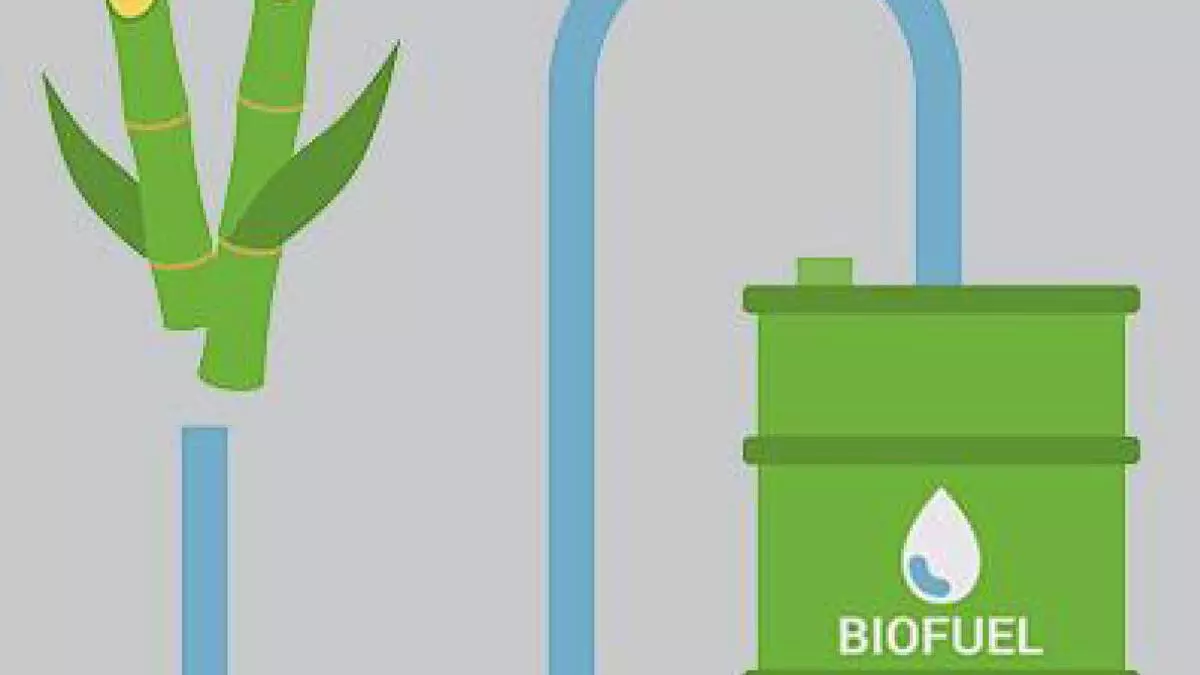ISMA moots subsidy to create additional 770 cr litres of ethanol capacity
The Indian Sugar and Bio-energy Manufacturers Association (ISMA) has urged the government to come out with advanced biofuel policies to take forward the current ethanol blending programme (EBP) beyond 2025. Some of the suggestions given by ISMA include announcement of a subsidy plan of ₹35,000 crore to create an additional 770 crore litres of ethanol production capacity.
Responding to the government’s call for suggestions on the “Roadmap for Ethanol Blending Beyond 2025”, ISMA presented its recommendations to the Inter-Ministerial Committee (IMC) a few days ago, wherein it has shared a detailed roadmap that emphasised the need for a collaborative approach, policy support, investments and technological innovation to enhance India’s energy security and successfully address future demands.
Sources said the ethanol production capacity in the country was at 1,683 crore litres — 815 molasses-based, 126 dual feed and 742 grain-based — as of October 31 and it is enough to meet the demand for 20 per cent blending target.
Target advanced
However, ISMA said in a statement that an increase in the demand for ethanol blending is expected to reach 1,127 crore litres in 2025-26 and further to 2,994 crore litres by 2034-35, requiring significant capacity addition. The government has advanced its E20 target from 2030 to 2025 with an infrastructure expansion of over 17,000 retail outlets dispensing E20 and 400 pumps for E100 fuel.
With India’s ethanol capacity currently at 1,683 crore litres, scaling up to 2,362 crore litres by 2030-31 is essential, said Deepak Ballani, Director-General of ISMA.
The roadmap beyond E20 is flexibility in ethanol use. The strategy is to promote the use of E100 (hydrous ethanol) along with the current E20 blend to ensure a smooth transition to higher ethanol blends, which will maximise the benefits of ethanol as a sustainable fuel option, ISMA said.
The industry body also stressed on the adoption of advanced technologies to complement ethanol use.
Other recommendations
Other recommendations of ISMA included reduction of GST to 5 per cent on FFVs and differential pricing on ethanol fuel. Total cost of ownership (TCO) normalisation of flexi-fuel vehicles (FFVs) and hybrid EVs (HEVs). It has called for investment in 2G ethanol production, sustainable aviation fuels (SAF) and ethanol to hydrogen conversion while highlighting the need to link formula-based pricing of ethanol with Fair and Remunerative Price (FRP) of sugarcane.
ISMA has suggested permission for establishing ethanol pumps for sugar biorefineries through “Bio Hubs”.
“There should be three pillars critical to the success to the EBP programme — demand side incentives through differential fuel pricing, supply side incentives through tax reductions and PLI on FFVs and HEVs,” Ballani said adding correct carbon accounting be provided, benefitting all levels of the value chain.
Ballani further said achieving the vision requires a collaborative approach, combining policy support, private investments, and technological innovation, in line with India’s commitment to sustainable and inclusive growth.
Output up 4 times
ISMA said India has come a long way in its ethanol journey and is a global leader in biofuels now. India has seen four times increase in ethanol production capacity with 90 per cent growth in the number of ethanol distilleries during 2014-24. The sector has seen investments of around ₹40,000 crore for setting up ethanol distilleries.
In terms of emissions reduction, India has reduced 50 million tonnes of CO2 equivalent emissions during this period and has met 4-5 per cent of its Nationally Determined Contributions (NDCs) every year. Also, by substituting 18.1 million tonnes (mt) of crude oil, India has saved around ₹1.1 lakh crore in foreign exchange.
As the country strives to enhance its energy security, it requires a long-term vision that involves a clear roadmap to address future demands, the industry body said.
